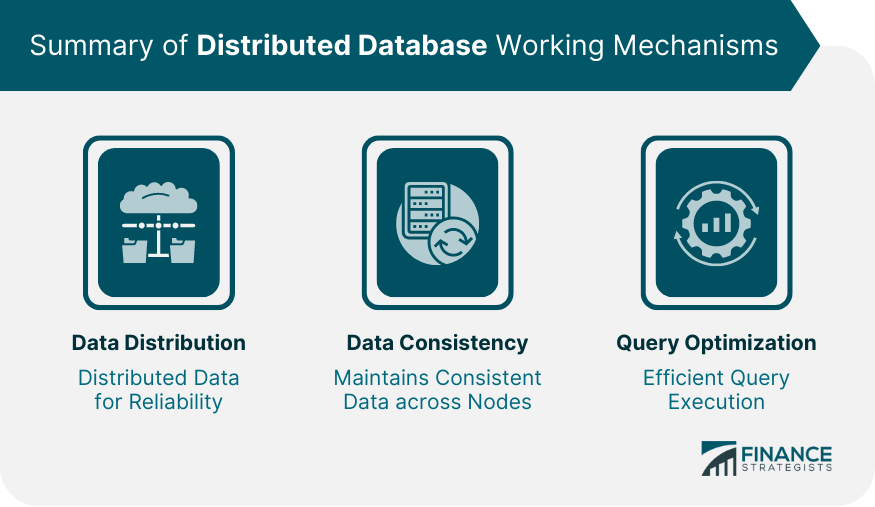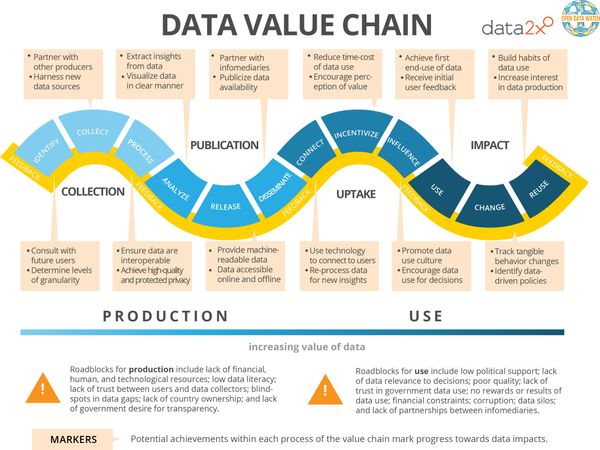Overview
Definition of data analytics
Data analytics refers to the process of examining, cleansing, transforming, and modeling data in order to discover useful information, draw conclusions, and support decision-making. It involves the use of various techniques and tools to analyze large volumes of data and uncover patterns, trends, and insights. Data analytics plays a crucial role in helping businesses gain a competitive advantage by enabling them to make data-driven decisions, identify opportunities for growth, optimize operations, and improve overall performance. By leveraging data analytics, organizations can better understand customer behavior, predict market trends, mitigate risks, and enhance their strategic planning. In today’s data-driven world, data analytics has become an essential component of business strategy and is transforming the way organizations operate and compete in the market.
Importance of data analytics in business
Data analytics plays a crucial role in driving business performance and success. In today’s digital age, businesses have access to a vast amount of data, and the ability to analyze and extract valuable insights from this data is essential. Data analytics allows businesses to make informed decisions, identify patterns and trends, and optimize their operations. One area where data analytics is particularly important is in optimizing database performance. By leveraging data analytics techniques, businesses can identify bottlenecks, improve query performance, and ensure efficient data storage and retrieval. Understanding how to optimize database performance is key to maintaining a competitive edge in the market. With the help of data analytics, businesses can uncover hidden opportunities, streamline processes, and ultimately enhance their overall business performance.
Benefits of using data analytics
Data analytics has become an essential tool for businesses in today’s digital age. The benefits of using data analytics are numerous and impactful. One of the key advantages is the ability to make data-driven decisions. By analyzing large volumes of data from various sources, businesses can gain valuable insights and make informed decisions that can drive growth and improve performance. Another benefit is the ability to identify trends and patterns. Data analytics allows businesses to uncover hidden patterns and trends in their data, which can help them identify opportunities and make predictions about future outcomes. Additionally, data analytics can improve operational efficiency. By streamlining processes and identifying inefficiencies, businesses can optimize their operations and reduce costs. Overall, data analytics has the potential to revolutionize business performance by providing valuable insights, improving decision-making, and driving innovation.
Data Analytics Process

Data collection and storage
Data collection and storage play a crucial role in the success of data analytics initiatives. The process of collecting and storing data allows businesses to gather valuable insights and make informed decisions. By collecting relevant data from various sources, organizations can analyze patterns, trends, and correlations to uncover hidden opportunities and address potential challenges. Additionally, effective data storage ensures that businesses have access to accurate and up-to-date information, enabling them to respond quickly to changing market conditions. In this rapidly evolving digital landscape, the ability to collect and store data securely is essential for businesses to stay competitive and drive business performance.
Data cleaning and preprocessing
Data cleaning and preprocessing is a crucial step in data analytics. It involves transforming raw data into a clean and usable format for analysis. This process includes removing duplicate records, handling missing values, standardizing data formats, and resolving inconsistencies. One of the key techniques used in data cleaning is the use of join operations. Join operations allow us to combine data from multiple tables based on a common attribute, enabling us to gain insights from related data. Another important technique is the use of subqueries. Subqueries are nested queries that are used to retrieve data from one table based on the values in another table. By using subqueries, we can filter and manipulate data in a more efficient and concise manner. Overall, data cleaning and preprocessing, along with the use of join operations and subqueries, play a vital role in ensuring the accuracy and reliability of data analytics results.
Data analysis and visualization
Data analysis and visualization play a crucial role in the success of businesses today. With the increasing availability of data, organizations are relying on data analytics to gain valuable insights and make informed decisions. One important aspect of data analysis is handling database updates. This involves managing and updating the data in the database to ensure its accuracy and relevance. By effectively handling database updates, businesses can ensure that the data they analyze and visualize is up-to-date and reliable. This, in turn, enables them to make more accurate predictions and identify trends that can drive business performance. Through data analysis and visualization, businesses can uncover hidden patterns and correlations, identify areas for improvement, and make data-driven decisions that lead to increased efficiency and profitability.
Applications of Data Analytics

Marketing and customer analytics
Marketing and customer analytics play a crucial role in the success of businesses today. By leveraging data analytics, companies can gain valuable insights into customer behavior, preferences, and trends. This information allows businesses to develop targeted marketing strategies and personalized customer experiences. With the help of advanced analytical tools and techniques, businesses can analyze large volumes of data to identify patterns and make data-driven decisions. By understanding customer needs and preferences, businesses can deliver more relevant and personalized marketing campaigns, resulting in higher customer satisfaction and increased sales. In addition, data analytics can also help businesses track the effectiveness of their marketing efforts and optimize their marketing budgets. Overall, marketing and customer analytics enable businesses to make informed decisions, improve marketing performance, and drive business growth.
Operations and supply chain analytics
Operations and supply chain analytics play a crucial role in the success of businesses today. With the increasing complexity of global supply chains and the growing demand for efficiency, organizations are turning to data analytics to optimize their operations. One key area of focus is database optimization. By leveraging data analytics techniques, businesses can identify bottlenecks, streamline processes, and improve overall performance. Database optimization involves analyzing and fine-tuning the structure, organization, and access patterns of databases to ensure optimal performance. Through the use of advanced analytics tools and techniques, businesses can uncover insights and make data-driven decisions to enhance their operational efficiency and effectiveness. By investing in operations and supply chain analytics, businesses can gain a competitive edge in today’s fast-paced and data-driven business environment.
Financial and risk analytics
Financial and risk analytics play a crucial role in the success of businesses. By leveraging data analytics techniques, organizations are able to gain valuable insights into their financial performance and identify potential risks. With the help of advanced algorithms and models, businesses can analyze large volumes of financial data to make informed decisions and improve their overall financial health. Additionally, risk analytics enables businesses to identify and mitigate potential risks, ensuring the stability and security of their operations. By incorporating data analytics into their financial and risk management strategies, businesses can optimize their performance and achieve sustainable growth.
Impact on Business Performance

Improved decision-making
Data analytics has greatly improved decision-making in businesses. By analyzing large volumes of data, organizations can gain valuable insights into customer behavior, market trends, and operational efficiency. This enables them to make more informed and strategic decisions that drive business performance. With the help of data analytics, companies can identify patterns, uncover hidden opportunities, and mitigate potential risks. Moreover, data-driven decision-making allows businesses to stay agile and responsive in a rapidly changing market. Overall, the impact of data analytics on decision-making cannot be overstated, as it empowers businesses to make smarter choices and achieve better outcomes.
Enhanced operational efficiency
Data analytics has greatly enhanced operational efficiency in businesses. One area where it has made a significant impact is in data migration. With the use of advanced analytics tools, businesses are able to streamline the process of transferring data from one system to another. This has resulted in faster and more accurate data migration, reducing the risk of errors and improving overall efficiency. By leveraging data analytics, businesses can also identify patterns and trends in their data, allowing them to make more informed decisions and optimize their operations. The ability to analyze large volumes of data in real-time has revolutionized the way businesses operate, enabling them to quickly identify bottlenecks, optimize workflows, and improve overall performance.
Increased revenue and profitability
Data analytics has had a significant impact on business performance, particularly in terms of increased revenue and profitability. By leveraging advanced analytics techniques, businesses are able to uncover valuable insights from large volumes of data. These insights can be used to identify new revenue streams, optimize pricing strategies, and improve operational efficiency. Additionally, data analytics enables businesses to make data-driven decisions, leading to better resource allocation and cost savings. Overall, the adoption of data analytics has proven to be a game-changer for businesses, driving growth and enhancing profitability.
Challenges and Limitations

Data quality and reliability
Data quality and reliability are crucial factors in the success of any data analytics initiative. Without accurate and reliable data, businesses cannot make informed decisions or derive meaningful insights. One key aspect of data quality is database performance. A well-performing database ensures that data is accessible, up-to-date, and consistent, enabling efficient and accurate analysis. Database performance directly impacts the speed and efficiency of data analytics processes, as well as the overall reliability of the insights generated. Therefore, businesses must prioritize optimizing database performance to ensure the quality and reliability of their data analytics efforts.
Privacy and security concerns
Privacy and security concerns are of utmost importance in today’s data-driven business landscape. With the increasing use of data analytics, organizations are collecting and storing vast amounts of sensitive information. This raises concerns about the potential misuse or unauthorized access to this data. Protecting the privacy of customers and ensuring the security of their data is crucial to maintaining trust and credibility. Additionally, businesses need to address the issue of database performance in relation to privacy and security. Ensuring that data analytics processes do not compromise the speed and efficiency of database operations is essential for maintaining optimal business performance.
Lack of skilled professionals
Lack of skilled professionals is a significant challenge that businesses face in the era of data analytics. With the increasing demand for data-driven insights and decision-making, the availability of professionals with the necessary skills to analyze and interpret data is crucial. However, in 2021, the shortage of skilled data analysts and data scientists has become more pronounced. This shortage not only hinders the adoption of data analytics in businesses but also limits their ability to leverage the full potential of their data. Organizations are struggling to find professionals who can effectively analyze complex data sets, identify patterns, and extract actionable insights. As a result, many businesses are investing in training and development programs to bridge the skills gap and build a workforce that is equipped to harness the power of data analytics.
Conclusion

Summary of key findings
Data analytics has become an essential tool for businesses in today’s digital age. It has revolutionized the way companies make decisions and optimize their operations. The key findings of our research highlight the significant impact of data analytics on business performance. Firstly, data analytics enables businesses to gain valuable insights from large volumes of data, helping them identify trends, patterns, and correlations that may not be apparent through traditional analysis methods. This allows companies to make data-driven decisions that are more accurate and informed. Secondly, data analytics helps businesses improve their operational efficiency by identifying areas of improvement and optimizing processes. By analyzing data, companies can identify bottlenecks, reduce costs, and streamline operations, leading to increased productivity and profitability. Lastly, data analytics also plays a crucial role in enhancing customer satisfaction and loyalty. By analyzing customer data, businesses can personalize their offerings, improve customer service, and create targeted marketing campaigns. Overall, our research demonstrates that data analytics has a transformative impact on business performance, enabling companies to gain a competitive edge and thrive in today’s data-driven economy.
Future trends in data analytics
Data analytics is constantly evolving, and future trends in this field are expected to have a significant impact on business performance. One of the key areas of focus is the comparison between MariaDB and MySQL, two popular database management systems. Understanding the differences between these two platforms is crucial for businesses looking to leverage data analytics effectively. MariaDB offers several advantages over MySQL, including improved performance, enhanced security, and better scalability. These differences highlight the importance of choosing the right database management system for data analytics purposes. As businesses strive to stay competitive in the digital age, staying updated with the latest trends in data analytics, such as the MariaDB vs MySQL differences, is essential for maximizing business performance.
Recommendations for businesses
Data analytics has become an essential tool for businesses looking to improve their performance and gain a competitive edge. In order to fully leverage the power of data analytics, businesses should consider implementing database monitoring. Database monitoring allows businesses to track and analyze the performance of their databases in real-time, ensuring optimal functionality and preventing any potential issues. By monitoring their databases, businesses can identify and address any performance bottlenecks, optimize query execution, and improve overall data quality. Additionally, database monitoring enables businesses to detect and respond to security threats, ensuring the integrity and confidentiality of their data. Overall, incorporating database monitoring into their data analytics strategy can greatly enhance a business’s performance and decision-making capabilities.







